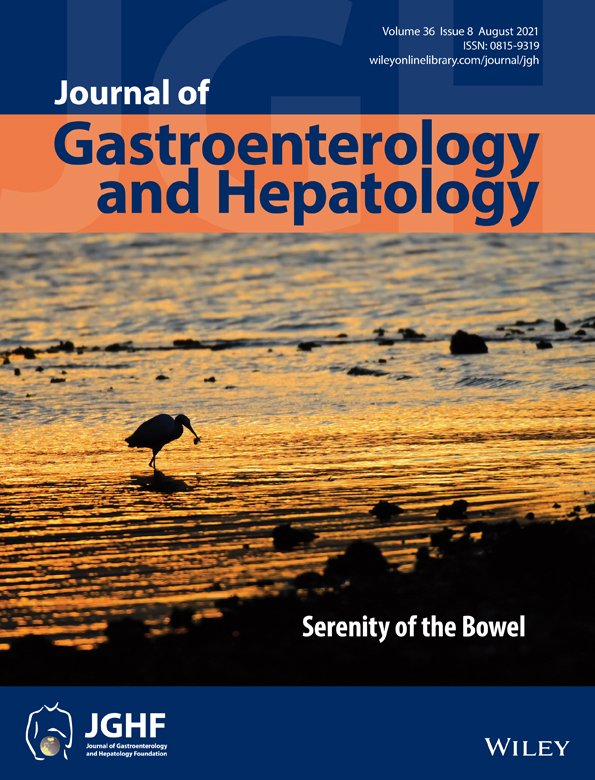Risk of metachronous neoplastic lesions during post-polypectomy surveillance in individuals with advanced colorectal neoplasia at initial screening colonoscopy
Declaration of conflict of interest: The authors have no conflict of interest related with this study.
Author contribution: Masau Sekiguchi and Takahisa Matsuda designed the study and interpreted the data. Masau Sekiguchi analyzed the data and drafted the article. Yasuo Kakugawa, Hiroyuki Takamaru, Masayoshi Yamada, Taku Sakamoto, and Yutaka Satio contributed to the critical revision of the article for important intellectual content. All authors approved the final version of the article.
Abstract
Background and Aim
The evidence of associations between some types of advanced colorectal neoplasia (ACN) at baseline and the risk of metachronous neoplasia is inconsistent. This study aimed to elucidate the incidence of metachronous neoplasia during post-polypectomy surveillance in individuals with ACN at baseline and examine the risk factors for its high incidence.
Methods
Data from individuals who underwent endoscopic resection for ACN and received surveillance colonoscopy were analyzed. Data from individuals with no neoplastic lesions at baseline were used as reference. The incidence of metachronous ACN and clinically significant neoplasia (ACN and nonadvanced adenomas sized ≥ 5 mm) were evaluated. Risk factors for the higher incidence of these lesions were examined in individuals with ACN at baseline.
Results
During the median follow-up period of 61.8 months, metachronous ACN and nonadvanced adenomas sized ≥ 5 mm were detected in 9.6% and 32.4% of individuals with ACN at baseline (n = 136), respectively. The cumulative incidence of metachronous ACN and clinically significant neoplasia in individuals with ACN at baseline (3-year incidence: 5.5% and 16.9%, respectively) was higher than that in individuals with no neoplastic lesions at baseline (P < 0.01 for both). The presence of advanced histology at baseline, ≥ 5 neoplastic lesions at baseline, and family history of colorectal cancer were identified as risk factors for the higher incidence of clinically significant neoplasia.
Conclusions
The relatively high incidence of metachronous neoplasia in individuals with ACN at baseline was confirmed; careful surveillance is required for these individuals, particularly in those with the risk factors.




